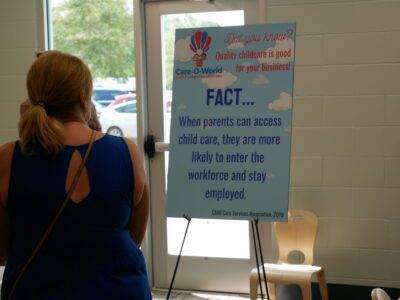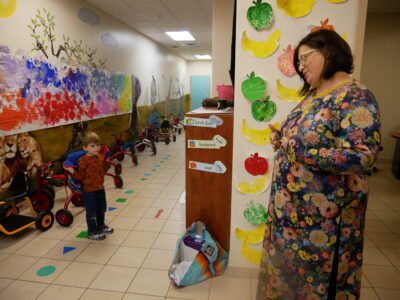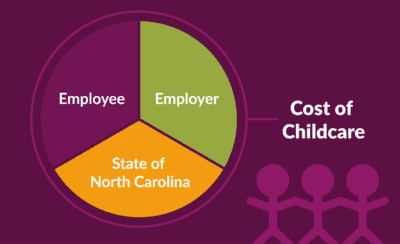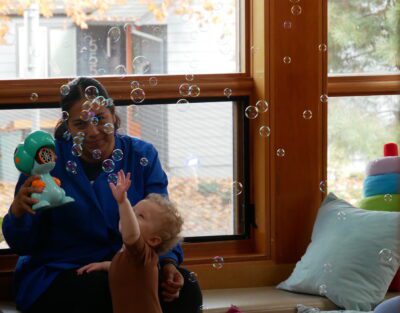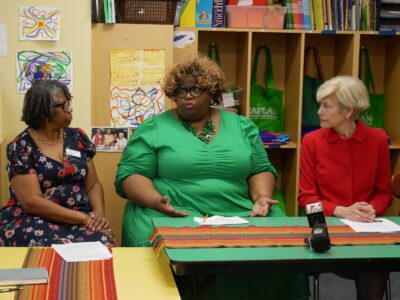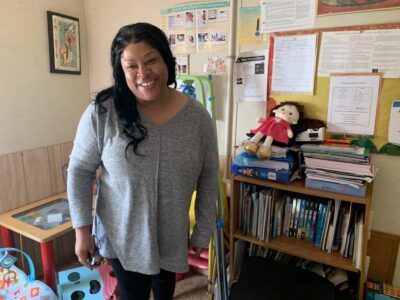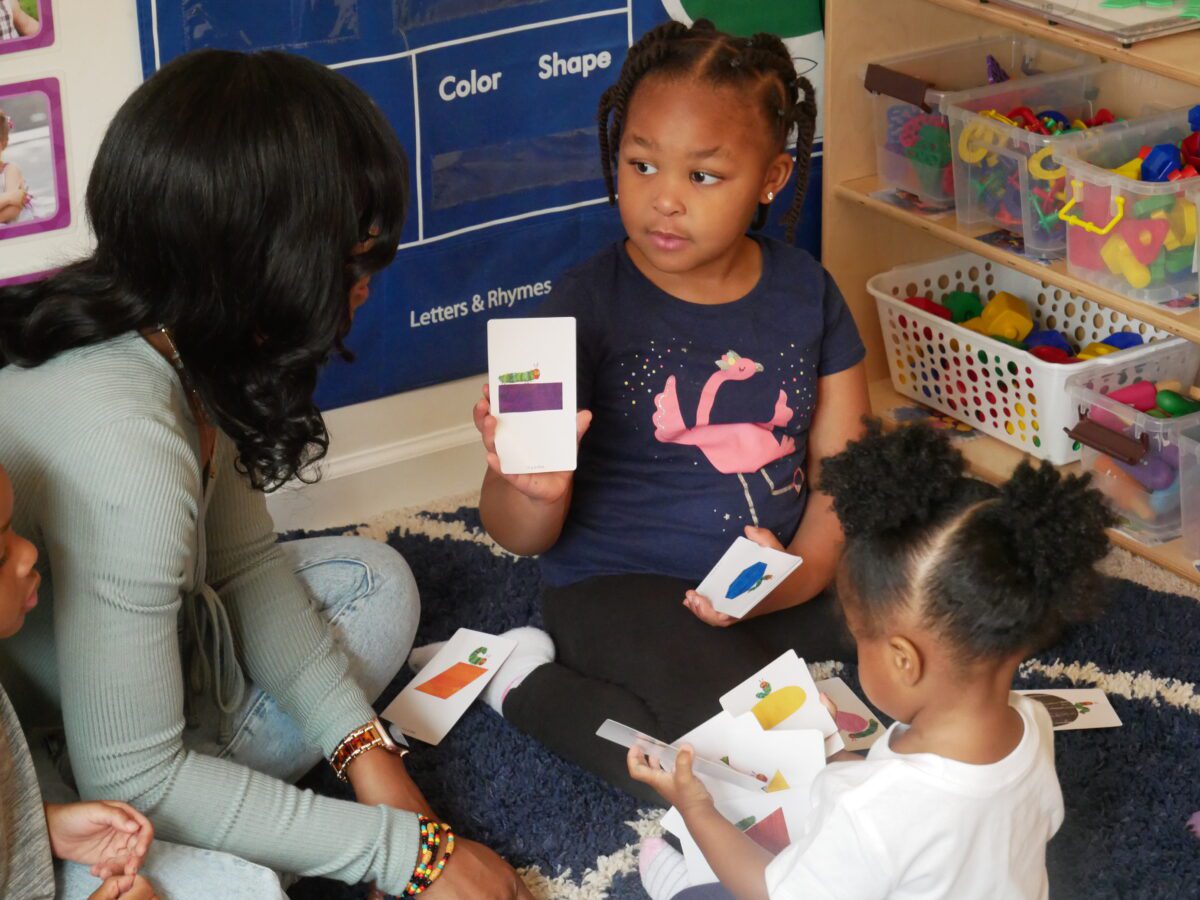
|
|
As federal funds stabilizing child care run out at the end of June, child care advocates are asking state legislators for a one-time $300 million allocation to avoid closures and price increases for parents.
Advocacy organizations, the legislative early childhood caucus, and business groups asked the General Assembly for the same amount last year without success.
Now that the expiration of the stablization funds is imminent, advocates are hoping legislators understand the urgency.
“The emergency that we’ve been talking about is here,” said Erin Carson, director of the National Domestic Workers Alliance (NDWA) state chapter. “There’s no more kicking the can down the road or talking about other funding sources.”
NDWA is coordinating a rally on May 16 for providers, educators, parents, and community advocates to meet with legislators.
Without help, the expiration of funds will mean higher prices for parents, higher teacher turnover, and less access — including closures — according to a survey of more than 1,500 providers published in March by the North Carolina Child Care Resource and Referral Council. Thirty percent of the providers who responded said they expect to close their doors at some point after the funding ends.
Research from other states that have run out of federal funding also shows reduced child care availability and higher prices.
What would the funding do?
The funding would extend stabilization grants that child care programs have been receiving from the federal American Rescue Plan Act since 2021.
Providers primarily have used those grants to increase teachers’ wages in order to retain staff while industries with similar qualification requirements, such as retail and food service, raised wages. Without those grants, programs are stuck between having to increase tuition or somehow reduce costs.
Almost 90% of survey respondents said they will have to increase parent fees. Forty percent of respondents said they expect to do so immediately. About 40% said they would have to close or combine classrooms. About two-thirds said they would find it difficult to hire staff with comparable education and experience.
“Every day that the legislature chooses not to invest in child care is another day closer to a funding cliff that puts North Carolina families and businesses at risk,” said Elaine Zukerman, advocacy and communications director at the NC Early Education Coalition. “Everyone knows someone who depends on child care. Extending the child care compensation grants will help us all avoid the catastrophic consequences of the end of this federal relief funding.”
The funding would help to avoid these realities in the short term. The idea is to stave off the cliff until the state’s next long legislative session next year, when legislators will craft a new two-year budget.
“It definitely is about buying time and staving off those immediate closures that centers are facing,” Carson said. “But ultimately we are talking about what other long-term funding is needed.”
Exactly how much is needed to sustain programs until the next session is probably less than $300 million, said Rep. Ashton Clemmons, D-Guilford, a co-chair of the early childhood caucus.
“We have less money in the short session budget than we are used to, so I think that’s just a challenge and a reality that we all have to understand and acknowledge,” she said.
“If we don’t solve this, families are not going to be able to make the right decisions and not going to be able to go back to work after they have children, and that’s going to impact all of our futures.”
During a conversation with reporters in April, House Speaker Tim Moore, R-Cleveland, called child care “a priority” but said, “We’re going to have to look and see what the numbers are.”
The state has a projected $413 million surplus this fiscal year. Moore is pushing for $300 million for a K-12 school voucher program for families to send their children to non-public schools, as well as $400 million toward Medicaid.
What happens when funds run out again?
Although the grants are necessary, they’d be a short-term fix, said Ariel Ford, director of the Division of Child Development and Early Education, under the state Department of Health and Human Services (DHHS).
“The reality is just we’ve underfunded early childhood for so long that there’s not a silver bullet,” Ford said.
Another proposal from last year that would establish a floor rate for programs receiving child care subsidy funding is an important step in funding child care more sustainably, Ford said.
Advocates are requesting $95 million annually to fund that floor. They are also requesting $10 million annually for Smart Start, the statewide network of local nonprofits that provides infrastructure and support to early childhood programs, families, and communities through a range of services and programs.
Sen. Jim Burgin, R-Harnett, another co-chair of the legislative child care caucus, said the state needs a long-term strategy for subsidizing child care.
He said there are options: providing tax breaks for child care providers, offering incentives for businesses to help with the cost, covering the cost of child care for teachers’ own children, and expanding the state’s Tri-Share pilot.
Tri-Share is a two-year pilot the legislature authorized last year. It launched in February. In 14 counties, the program splits the cost of child care between participating businesses, eligible employees, and the state. The legislature allocated $900,000 for each year of the pilot.
More on Tri-Share
Burgin also said community colleges would be the ideal location for child care programs to serve students and communities and train future early childhood teachers. Only a handful of on-campus child care programs remain at community colleges because of the high costs of providing care.
“Everybody knows child care is broken right now,” Burgin said. “We need to get people have to have a safe, reliable place for your children if you’re going to work.”
New rating system, NC Pre-K requests
Legislators also will probably approve recommendations this session from the Child Care Commission to reform the state’s rating system for licensed child care, called the Quality Rating and Improvement System (QRIS).
Following legislation from last year, the commission created a framework to provide three pathway options to programs instead of rating all programs with one points-based approach.
The Licensed Child Care Association is also requesting that a hold-harmless provision that would delay rating assessments be kept in place until the new QRIS is implemented.
The association is also pushing for tax policy changes to expand high-quality child care and for subsidies or tuition assistance for child care staff and teachers to “a) Ensure they are able to work to help support their families, b) Increase capacity to serve other children and families, and c) Reduce staff turnover, which is harmful for young children.”
DHHS Secretary Kody Kinsley requested $197 million for NC Pre-K, the state’s preschool program for eligible 4-year-olds, in a letter this week addressed to early childhood advocates and stakeholders. Eligibility for the program is determined by the state’s “at-risk” factors, including income. The program reaches about half of eligible 4-year-olds, or 30,000 children.
Kinsley wrote that the program’s insufficient funding could mean decreased pre-K access as federal funds that DHHS has used to supplement the state’s rates run out.
He recognized the legislature’s allocations to the program in recent years, but said the costs of running the program have increased. The rate the state provides schools and child care centers to operate the program covers only 48% of the cost.
The letter states that this request will be included in Gov. Roy Cooper’s budget proposal, which has not been released. After Cooper puts out his plan, the House and Senate each will release a proposal and work together to approve a compromise.
Kinsley said NC Pre-K access is also threatened by the larger looming child care crisis.
“We are in an early care and education crisis,” the letter reads. “Our state’s child care and early childhood system needs a substantial investment of hundreds of millions of dollars this legislative session, including this investment in NC Pre-K, as well as Child Care Subsidy rate increases and an extension of Child Care Stabilization Grants. The General Assembly can support access to child care and Pre-K across the state and strengthen the early education workforce by making the investments included in Governor Cooper’s budget proposal. Without these investments, thousands of families across the state will lose child care.”



